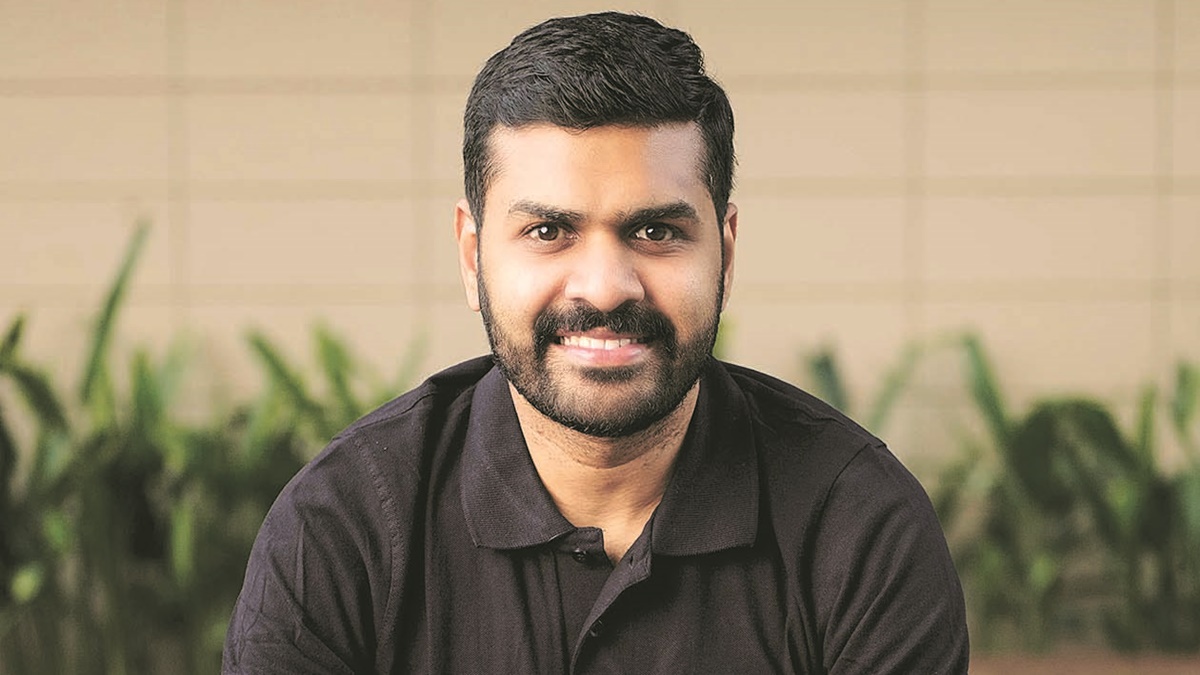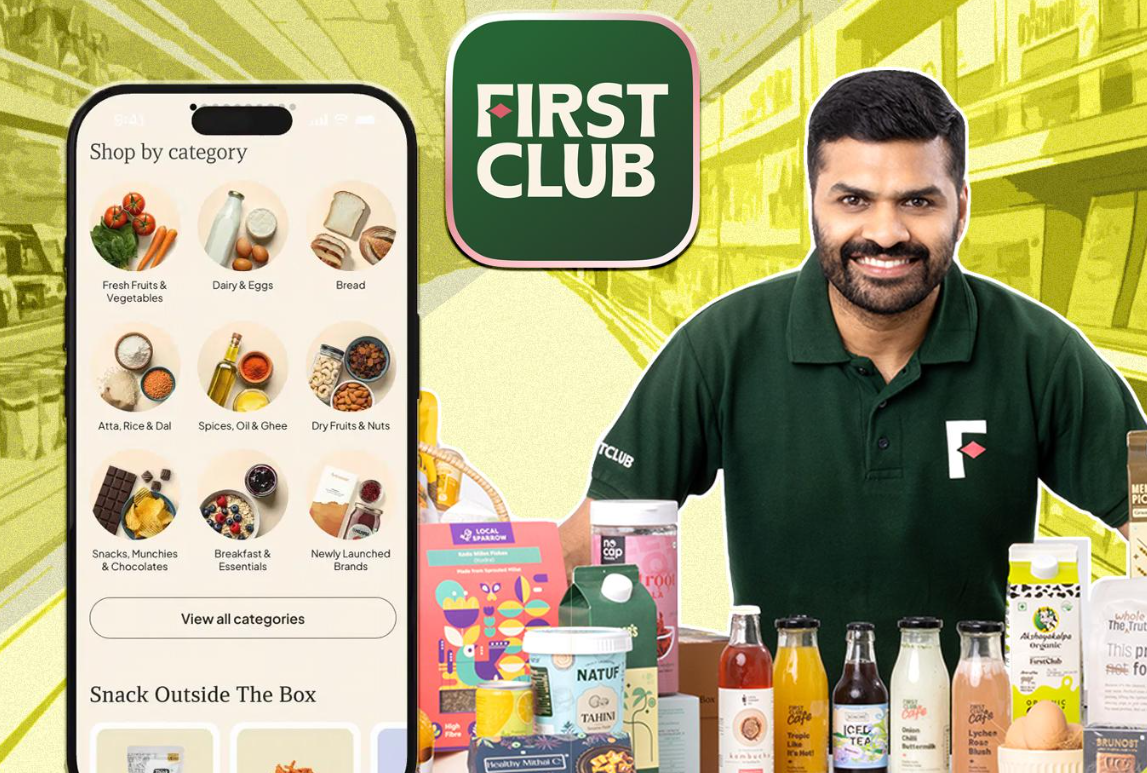The Rise of FirstClub
In a market where speed has become the ultimate selling point, Bengaluru-based FirstClub is carving out its own niche by betting on quality over convenience. Founded by former Cleartrip CEO Ayyappan Rajagopal, the company was born out of a simple but powerful idea: premium groceries and fresh produce should not be luxuries available only to a small fraction of Indian households. Rajagopal wanted to democratize high quality essentials without making them prohibitively expensive, and that vision gave birth to FirstClub.

The startup officially entered India’s online grocery market valued at over 8.82 billion dollars, which is growing rapidly at nearly 45 percent annually. FirstClub was designed to meet the rising expectations of a new generation of Indian consumers who are willing to spend more on freshness, authenticity, and clean label products but are tired of the compromises often associated with speed-driven quick commerce apps.
Moving Beyond Convenience
Before launching, FirstClub conducted extensive consumer research. The team surveyed nearly 780 individuals across metros and non-metro cities to understand how shopping habits had evolved. The insights were clear. Indian consumers are adventurous, open to spending on high quality food, and increasingly dissatisfied with the lack of consistency in quick commerce deliveries, particularly when it comes to freshness.
ADVERTISEMENT
While Blinkit, Zepto, and Instamart promise rapid deliveries, many customers still prefer traditional ways of buying fruits and vegetables due to quality concerns. FirstClub saw the gap and positioned itself not as the fastest, but as the most reliable provider of premium groceries. Its repeat purchase rate of more than 60 percent in under a year is evidence of this loyalty-driven approach.
Clubhouses Instead of Dark Stores
Unlike its rivals that operate out of dark stores, FirstClub has introduced the concept of transparent clubhouses. Customers are not only allowed to shop online but will also be invited into these spaces to see firsthand how products are stored and curated. With three clubhouses already running in Bengaluru and plans for expansion into 35 locations across the city, the brand is building trust through openness.
Each product goes through multiple layers of testing, from warehouse to store level to final dispatch. Instead of overwhelming shoppers with dozens of options, FirstClub focuses on a handful of carefully curated, top-quality selections. Whether it is ghee, breads, or spices, only the best survive the rigorous testing process. Exclusive offerings, many of which are unavailable on competing platforms, further differentiate its catalog and drive consumer loyalty.

Building Stronger Unit Economics
For most quick commerce companies, profitability remains a struggle. FirstClub claims its clubhouse model allows it to achieve breakeven faster. Its unit economics are structured around higher average order values and stronger margins. Customers buy more items in a single order, often double the industry average, which boosts revenue per transaction. Working directly with manufacturers eliminates unnecessary intermediaries, allowing premium quality at competitive prices.
ADVERTISEMENT
The startup has already raised 23 million dollars in a Series A round co-led by Accel and RTP Global, giving it a valuation of 120 million dollars. This funding is earmarked for expansion, technology upgrades, and talent acquisition across operations and brand building.

The Road Ahead
FirstClub’s ambitions go beyond groceries. Plans are underway to add cafés serving freshly prepared food, a gifting vertical for festive and corporate customers, and a range of home and lifestyle products. On the technology front, the company is investing in generative AI systems to refine its supply chain and strengthen personalization.
The biggest challenge for FirstClub will be maintaining its strict quality standards while scaling up. Freshness and curation require careful planning, and expanding into new markets means rebuilding consumer trust from the ground up. Yet, if the brand manages to preserve its differentiation, it has the potential to become a formidable player in India’s booming consumption economy.
Follow Marketing Moves on Instagram and Facebook for more insights on how emerging brands like FirstClub are challenging industry giants with bold, consumer-first strategies.

















